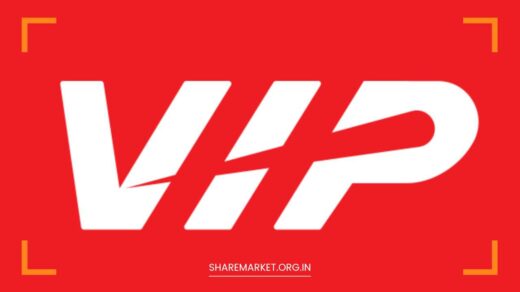Nifty Pharma Crashes: Gland Pharma & Divis Labs Drop by 11%

Nifty Pharma Crashes
Nifty Pharma Crashes: Gland Pharma & Divi’s Lab Drop 11%—How Crucial is the US Market for Indian Pharma?
The Indian pharmaceutical sector recently experienced a sharp decline, with the Nifty Pharma index plunging nearly 7%, as fears over potential US tariffs on generic drug exports to the United States intensified.
The major stocks that led this downturn included Gland Pharma, Divi’s Lab, and Laurus Labs, all of which saw their share prices drop by around 11%.
This sharp fall in the pharma sector wiped off substantial value from India’s leading pharma stocks, with the Nifty Pharma index closing at 19,121.10, a drop of 6.99%.
The immediate cause of this significant slide in the market was the growing concern that the US might impose heavy reciprocal taxes on foreign pharmaceutical companies, especially those exporting generic drugs, which are a vital part of India’s pharmaceutical export landscape.
While the broader stock market faced volatility, the impact on the pharma sector was particularly pronounced, with all 20 companies listed in the Nifty Pharma index showing negative performance.
The pressure on these stocks came at a time when the sector was already grappling with rising costs, regulatory hurdles, and geopolitical uncertainties.
The potential of a tariff war between the US and Indian pharma companies has raised alarm bells, particularly because of the prominence of the US market for Indian drug manufacturers.
What Could Heavy Reciprocal Taxes Mean for Indian Pharma?
If the United States were to impose heavy reciprocal taxes on pharmaceutical imports, particularly targeting generic drugs, the consequences could be far-reaching, both for the Indian pharmaceutical industry and for American consumers.
Generic drugs, which are typically much more affordable than branded medications, make up a significant portion of drug sales in the US.
Indian pharmaceutical companies, which have become global leaders in the manufacturing of generic medicines, stand to be directly affected by any trade restrictions or tariff impositions.
The immediate effect of such tariffs would be an increase in the cost of medicines in the US. Since generic drugs account for around 90% of all prescriptions dispensed in the US, any rise in the cost of these drugs would directly affect millions of Americans who rely on affordable medication.
For India, this could lead to reduced sales in one of its most lucrative markets, undermining its position as the world’s leading exporter of generic medicines.
Moreover, the introduction of reciprocal taxes could disrupt the well-established supply chains between India and the US.
These disruptions could affect the timely delivery of medications, leading to shortages and increased delivery costs.
Additionally, tariffs could delay or complicate the process for Indian pharmaceutical companies to gain approval for new drug filings in the US market.
The regulatory environment could become more challenging, with additional red tape and longer approval timelines potentially causing significant delays in bringing new products to market.
The Ripple Effect on Indian Pharma Companies
The impact on Indian pharmaceutical companies would be profound. These companies currently hold a dominant position in the global generic drugs market, with a significant portion of their revenue coming from exports to the US.
The pharmaceutical sector in India is estimated to be worth over $50 billion, and it plays a crucial role in India’s overall export economy.
If the US were to implement heavy tariffs, it could dent the profitability of Indian pharma companies, leading to a decline in their stock prices and overall market valuations.
Among the most affected would be companies like Gland Pharma, Divi’s Lab, and Laurus Labs, which have substantial market exposure to the US.
The recent decline in their stock prices is a reflection of investor anxiety over the potential ramifications of a tariff on pharma exports.
If US tariffs lead to lower margins and reduced market share, these companies could see a slowdown in their earnings growth, affecting their ability to reinvest in research and development, expand production capabilities, and pursue international market opportunities.
Moreover, Indian pharmaceutical companies, particularly those with a significant portion of their business dedicated to the US market, may have to revise their business models.
Some may look to diversify their markets and reduce their dependency on the US, while others might seek to push back against the tariffs through lobbying efforts or by expanding production in other markets to offset losses from the US.
Why is the US Market So Important for Indian Pharma?
The United States represents one of the largest, if not the largest, market for Indian pharmaceutical companies.
India’s pharmaceutical industry is known for its strong generics sector, which supplies affordable medications not only to India’s domestic market but also to countries around the world.
The US, with its aging population and high demand for affordable medicines, has become a critical market for Indian pharma companies, accounting for a large share of their exports.
According to recent data, Indian pharma exports to the US amounted to $6.5 billion in the financial year 2024. This highlights the massive significance of the US market to Indian pharma companies.
In fact, the US market alone accounts for over 30% of the total revenue generated by India’s pharmaceutical exports.
The US’s dependence on Indian generic drugs makes the market vital for the financial stability and growth prospects of these companies.
The US’s healthcare system, with its high cost of prescription drugs, has made generic drugs a necessity for millions of Americans. Indian pharmaceutical companies have been able to leverage this demand by providing high-quality generics at much lower prices compared to branded alternatives.
This has helped to make healthcare more accessible for a wide segment of the population, particularly those without health insurance or those in lower-income brackets.
As such, any disruption in this trade relationship could have severe consequences not just for the companies involved, but for the broader healthcare system as well.
The Bigger Picture: What Happens Next?
As discussions around tariffs and trade policies intensify, Indian pharmaceutical companies will need to prepare for the potential fallout from any changes in US trade policy.
They will need to carefully assess the risk of tariff impositions and develop strategies to mitigate the impact.
This could involve diversifying their market presence by targeting other high-growth regions, such as Europe, Africa, and Southeast Asia, or investing in new production and R&D initiatives to stay ahead of the competition.
Moreover, there is likely to be increased lobbying from the Indian pharmaceutical industry to prevent any adverse trade policies from being enacted.
Given the scale of the Indian pharma industry’s exports to the US, there will likely be significant diplomatic efforts to resolve any potential trade disputes.
It will also be critical for Indian pharma companies to maintain strong relationships with US regulators and ensure their continued compliance with the FDA’s stringent standards.
Final Remarks
The potential imposition of heavy reciprocal tariffs on generic drugs by the US poses a significant threat to India’s pharmaceutical industry, especially considering the vital role the US market plays in the sector’s growth and profitability.
The sharp decline in stocks like Gland Pharma, Divi’s Lab, and Laurus Labs serves as a stark reminder of how sensitive the sector is to external policy changes.
As the situation unfolds, it will be crucial for Indian pharmaceutical companies to closely monitor the evolving trade landscape and adapt their strategies to safeguard their market share and profitability.

















